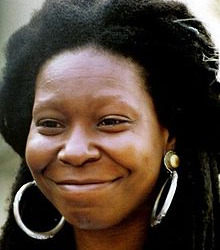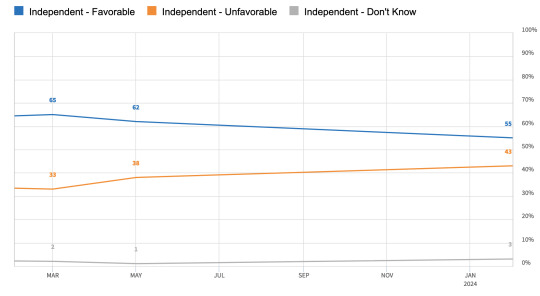#kaiser family foundation
Explore tagged Tumblr posts
Text
Rising Health Care Costs - A Serious Issue, Election Implications?
Long time readers/followers know that I from time to time, address health care costs. I follow economics generally and write about the same, especially when there are intersectional issues to address. As we are heading into a presidential election cycle (we are in the early innings) and, issues like health care costs in this country should be front and center. Medicare is structurally, not…

View On WordPress
#Economics#employee benefits#Health Affairs#Health Care Costs#Health Care Reform#Health Insurance#Kaiser Family Foundation#Market Trends#Medicaid#Medicare#Money#Payment#Policy#Politics#private insurance#Report on Health Benefit Costs#Strategy#Trends#Washington
0 notes
Text
Here’s How Americans Really Feel About LGBTQ Issues
Here’s How Americans Really Feel About LGBTQ Issues
View On WordPress
#America#Axios/Ipsos#Gallup Poll#LGBTQ#NPR/PBS NewsHour/Marist#Pew#Post/KFF#PRRI#Transgender#Washington Post/Kaiser Family Foundation
0 notes
Text
Medicaid is a federal program that provides health care to roughly 72 million Americans, including some 14.8 million Californians. Among other kinds of care, Medicaid — which turns 65 years old this year — includes coverage for lower-income and disabled people. Among other things, it covers substance abuse programs, nursing home care, and nearly half of all births nationwide.
Now, Republicans in Congress are proposing huge cuts — at least $880 billion — to this government health insurance program as part of a budget package that would extend and expand tax cuts for the wealthy, as well as finance President Donald Trump’s border security agenda.
Republicans have claimed that Medicaid doesn’t improve health outcomes, states inappropriately juice their federal Medicaid dollars and that shrinking Medicaid funding would improve it. But what would such deep cuts to Medicaid actually look like, and how likely are they to happen?
KQED Forum spoke to the following experts about what to know about Medicaid right now — what it does, who it serves and who would be most affected by the proposed cuts:
Larry Levitt, executive vice president, Kaiser Family Foundation
Joanne Kenen, journalist in-residence, Johns Hopkins School of Public Health
Kristof Stremikis, director of market analysis and insight, California Health Care Foundation, independent nonprofit focused on improving healthcare for Californians
Chiquita Brooks-LaSure, former administrator, Center for Medicare and Medicaid Services; served as administrator during the Biden administration from 2021–25
This conversation has been edited for brevity and clarity.
How is Medicaid different from Medicare?
Larry Levitt: Medicare is the program that covers seniors and people with disabilities. Medicaid was actually created at the same time as Medicare [in 1965.] Originally, it was connected to welfare — so it covered low-income children, single parents.
It’s been expanded dramatically over time to cover seniors because seniors on Medicare actually have a lot of costs. Big deductibles, things Medicare doesn’t cover, like nursing homes. Medicaid fills in those gaps.
Medicaid was expanded to cover [people with] disabilities and, most recently, under the Affordable Care Act, was expanded to cover all low-income people — at least in those states that choose to do that.
We think of Medicare and Social Security as kind of third rails in American politics: That if you touch them, you get burned. Medicaid has generally not been thought of in that same category, but it actually covers more people now than Medicare or Social Security.
The liberals view Medicaid as a stepping stone, as a part of our complex system, to get as close to universal coverage as we can. Conservatives view it as welfare, only for the deserving poor.
What — and who — does Medicaid cover?
Levitt: Medicaid offers very comprehensive services, [including] home care: Assistance in the home for someone who has a disability, or a senior. It covers nursing home care — institutional care for people who need that. These are people who would otherwise not be covered [by] private insurance — would not have the benefits they need to stay healthy, stay in their home [with] private insurance.
We think of it as covering these low-income people: low-income kids, low-income parents, low-income adults. In fact, over half the spending in Medicaid — [called] Medi-Cal in California — goes [to] people with disabilities and seniors.
Chiquita Brooks-LaSure: If you have a child with high needs, who’s born needing an organ transplant, most of the people who are covered in children’s hospitals in this country depend on Medicaid for their surgeries, for their drugs.
I think it’s really important that as we talk about making changes to the Medicaid program, which has long been a target and has been in the past really described as a welfare program, it is now a [lifeblood] of our health care as a country.
Kristof Stremikis: This really is a program that supports many, many people here, and people in different circumstances. And by the way, those life circumstances, as they do for everyone, they change. This isn’t one static group of people. It really is there for all sorts of Californians. It’s really important to a lot of different people.
Levitt: Certainly, if you have a job, a good job that provides health benefits, that’s how you’re going to get your health insurance. But people lose their jobs, people get their hours cut and lose their health benefits. People have an illness and can’t work anymore. And that’s what this safety net is there for.
What does Medicaid look like in California?
Levitt: Medicaid is implemented differently in every state. In some states, it’s called different things: in California, it’s called Medi-Cal. And the financing is shared between the federal government and states. So if the federal government pays — for example, in California — about half the cost, the state pays the other half of the cost. So it’s not the same thing everywhere [in the way that] Medicare is.
And that’s kind of a point of contention around Medicaid: That if a state is willing to increase its spending, then the federal government will have to increase its match. … So there’s no cap. It’s not required to be appropriated every year in the federal budget. It’s essentially automatic spending.
What would deep cuts to Medicaid look like?
Joanne Kenen: [Cutting $880 billion from Medicaid] would require a fundamental restructuring. It would not look like Medicaid looks today. It would not be an entitlement anymore: It would be what they call a ‘per capita cap.’ [Read more about this proposal for the federal government to pay states based on their number of Medicaid enrollees instead of matching a certain percentage of yearly state spending with no cap. .]
Stremikis: Reductions of the sort that [we] are talking about can only really lead to three sorts of outcomes and probably some combination of all three of these.
Number one is: Fewer people will be covered by Medicaid programs, including Medi-Cal here in California.
The benefits that states are offering that are included in Medicaid health insurance, including Medi-Cal here in California, will [also] be reduced. And so, fewer things will be covered.
And then … the payments that are going into the system to providers, to hospitals, to skilled nursing facilities, to nursing homes will be reduced.
Brooks-LaSure: I think it’s really important for us to all understand how much Medicaid supports the underlying health care system: hospitals, community health centers. Medicaid is the primary payer for mental health services. … And educational services are often supplemented when you need help with your child with autism, who [has] special needs.
It also certainly would affect the states that are trying to do the right thing. So states like California, which have had a strong commitment to the Medicaid program. If there are changes made in [federal] payments, that will either put burdens on states to use their funds — state-only dollars to try to supplement coverage — or have to cut services.
How did we go from President Trump vowing to ‘love and cherish’ Medicaid to backing these cuts — and what are the chances they’ll actually happen?
Kenen: There’s been a realignment in the Republican Party, and more working-class, lower-middle-class people who are on Medicare [and] Medicaid are Trump voters. So you’ve changed the political dynamic here. Who relies on Medicaid is different than historically, as Medicaid has gotten bigger.
The Republicans have gone deep, deep, deep toward cuts. We don’t know [if] they can achieve them. We’re at the very, very, very beginning of what is a very long budget process. They passed it [in] committee. They’re having trouble getting it through the floor. It’s a very tight majority in the House. Then Trump, who’s all ‘loving and cherishing’ his Medicaid, just flipped and said he’s backing the House bill. It’s dizzy[ing].
On the other hand, they’ve been trying to [make cuts to Medicaid] since the Reagan years. Literally, this has been a priority in certain circles on the right for 45 years now, and they haven’t gotten it. And I think there’s a lot of reasons, including who is the base of the Republican Party.
It’s not going to be easy to do this. I think the odds are against [Republicans]. I mean, you can’t rule out anything anymore because things that you thought could never possibly happen are happening by the dozen, right? But it’s really, really an uphill struggle.
And you’re going to hear from the providers. If they’re going to lose $880 billion of revenue or anything close to that, they’re going to lobby, they’re going to be out there, and it’ll be their voices you hear a lot on the Hill.
What else could Republicans do to Medicaid even if this full proposal doesn’t succeed?
Kenen: There are lots and lots of other things that [Republicans] could [also] do that are less dramatic and less deep that would still mean fewer people are covered or [would] affect the expansion part of the [Affordable Care Act]. There’s lots of little things: Work requirements, even just making the enrollment process more cumbersome. You end up covering fewer people.
Stremikis: We don’t precisely know what is being considered. What we do know, though, is the federal government right now pays for between 60% and 70% of the $150 billion that’s flowing into [California’s] health care system from the Medi-Cal program. I think even under some of these small changes, we are talking about billions and billions of reduced federal dollars. … I don’t really think there’s a lot of scenarios in which California can step in and replace billions upon billions in lost federal revenue.
And so I think the question really is now for folks to decide, is this something we want, that we support? And take action.
This story contains reporting by KQED’s Grace Won.
21 notes
·
View notes
Text
Medicaid is on the chopping block. As Republicans on Capitol Hill try working through the details of their budget plan, the U.S. Congressional Budget Office has confirmed that achieving the level of spending cuts sought by the GOP will require steep cuts to the program. The House Committee on Energy and Commerce has been charged with making $880 billion in spending reductions from the programs over which it maintains jurisdiction. Certain large programs under the committee’s purview are deemed politically out-of-bounds—such as Medicare, which is federal health insurance for people age 65 and over (and for some people under 65 with certain disabilities and conditions).
Instead, it’s the 72 million Americans receiving Medicaid—a joint federal and state program that covers medical costs for people with limited resources—who are most likely to feel the bite.
Going after Medicaid will be dangerous, since the program has unexpectedly emerged as one of the most essential components of the country’s national health care system. According to the Congressional Budget Office, it constitutes $8.2 trillion of the $8.8 trillion of the committee’s 2023-2034 budget (excluding Medicare). Medicaid has provided health care for tens of millions of Americans deemed to be “medically indigent”—meaning that they are unable to pay for their services—as well as those who are physically disabled.
Unlike so many issues in our politics, Medicaid does not abide by the partisan color line. There are 72 million people receiving benefits. More than 40 percent of births take place with Medicaid dollars, which also pays for half of long-term nursing care. In certain respects, all Americans are Medicaid beneficiaries in 2025. According to the Kaiser Family Foundation, 40 percent of Americans want Medicaid funding to stay the same, 42 percent think that it should be raised, and only 17 percent believe that the numbers should go down.
Indeed, sizable numbers of voters who President Donald Trump attracted into his coalition—particularly working Americans who are struggling to survive in the modern economy—depend on Medicaid, which is the creation of former Democratic President Lyndon Johnson. Recent data from the New York Times showed that more than 40 percent of the population in a reliably Republican area of rural Kentucky depends on Medicaid. One-third of the constituency in Louisiana Republican Rep. Julia Letlow’s district received Medicaid.
As War Room podcast host Steve Bannon recently warned in an interview, “A lot of MAGA’s on Medicaid. If you don’t think so, you are dead wrong. You can’t just take a meat axe to it.”
When Congress created Medicaid through the Social Security Amendments of 1965, legislators likely never imagined that it would become a major program.
In fact, it was barely discussed. Most of the political debate centered on Medicare—hospital insurance coverage for elderly Americans that would be incorporated into the Social Security system. The federal government would administer Medicare, paid for through Social Security taxes, and coverage would be universal, so that anyone covered under Social Security received the benefit.
Medicaid actually originated with conservative legislators who were sympathetic to the American Medical Association’s attacks on Medicare as “socialized medicine,” and who for years had pushed a smaller, means-tested program that aimed to stave off demands for something bolder. For instance, in 1960, Oklahoma Sen. Robert Kerr and Arkansas Rep. Wilbur Mills, the chairman of the powerful House Ways and Means Committee—both Democrats—had pushed a rather meager program called Medical Assistance for the Aged, modeled on public welfare, which involved a means test.
But when the political climate changed after the 1964 election, after Johnson enjoyed a landslide victory over Republican Sen. Barry Goldwater and Democrats obtained massive majorities in the House and Senate, Congress moved forward to pass an ambitious heath care plan that included Medicare A (hospital insurance for Americans 65 and over, paid for by Social Security taxes), Medicare B (physicians insurance for Americans 65 or over, paid for by general tax revenue and contributions from those who wished to receive benefits), and Medicaid (an extension of the Kerr-Mills Act).
Under Medicaid—the part of the legislation that received the least attention—federal and state funds would assist elderly Americans who could not pay for their medical expenses through their existing income. This was an expansion of the Kerr-Mills program that Congress enacted five years earlier. Mills, who had stood as the chief obstacle to Medicare until 1965, changed his tune once it was clear that larger and liberal Democratic majorities, along with the bulldozer of a President Johnson, were going to succeed with or without him. Mills seized the spotlight by putting together a package more grandiose that what Johnson had envisioned.
While Medicaid started as a footnote, though, the program quickly expanded. Under Gov. Nelson Rockefeller, New York quickly capitalized on this barely noticed measure. Using state authority to expand rather than contract policy (as Southerners had done with anything related to civil rights), the state’s Department of Social Services coordinated with local districts to liberalize eligibility to the program and expand the range of benefits.
As one aide to then-New York Sen. Jacob Javits explained to the New York Times, “Congress had absolutely no idea Title 19 [of the Social Security Amendments of 1965, Medicaid] could turn into a multi-billion-dollar program approaching national medical insurance.” Fiscally conservative members of Congress, such as Mills, were so frustrated by New York’s actions that they passed legislation in 1967 in an attempt to force the state to reduce benefits and curtail the number who were eligible. The federal crackdown, however, had limits.
Medicaid continued to grow. In 1972, Congress passed the Supplementary Security Income program (SSI) which combined a number of cash-assistance programs run by the states into a single program run by the federal government.
At the same time, Medicaid did continue to come under pressure as politics shifted rightward. In 1977, the House passed Republican Rep. Henry Hyde’s amendment restricting the use of Medicaid funds to finance abortion (other than in the cases of rape, incest, or danger to the mother’s life). President Ronald Reagan’s 1981 budget removed many working Americans from Medicaid and reduced the types of coverage that could be provided by the states. Within some conservative states, elected officials took advantage of federal guidelines to further shrink coverage. These were significant changes, though Congress rejected Reagan’s proposal effort to turn Medicaid into a block grant.
Yet in this era of retrenchment, other forms of liberalization continued. In 1982, Arizona finally embraced the program, thereby ending its role as the final state to hold out from participation. During the 1980s and 1990s, Medicaid expanded by incorporating new categories of citizens such as pregnant women and infants. Several states capitalized on federal waivers to introduce home- and community-based services for beneficiaries.
As the political scientists Colleen Grogan and Eric Patashnik argued in a 2003 article for the Journal of Health, Politics, Policy and Law, policymakers won support for the expansions by focusing on parts of the population perceived to be “deserving” of help and by justifying the changes on the grounds that Medicaid was economically efficient.
The political strength of the program had become evident by 1995-1996, when it was one of the programs that then-President Bill Clinton defended when he attacked the Republican budget during a prolonged federal shutdown. Almost 36 million Americans benefited from Medicaid by 1996—compared to about 23.5 million in 1989.
In 1997, Clinton won support from a Republican-led Congress for the State Children’s Health Insurance Program, which offered health care services to children whose families earned too much to qualify for Medicaid. A few states included pregnant women under the same economic circumstances.
The final period of major expansion took place with the Affordable Care Act, signed into law by President Barack Obama in 2010. The ACA authorized states to expand eligibility upward to people who had incomes that reached 138 percent of the federal poverty level. While the original legislation mandated this change, the Supreme Court ruled in 2012 that states had the option of doing so.
For some time, red states resisted the change—despite immense pressure from their electorates, health care institutions, and elected officials to take the offer. Over time, the resistance withered as the Affordable Care Act provided another boost to Medicaid; by the end of 2024, 41 states and the District of Columbia had undertaken the expansion. Medicaid enrollment boomed further during the COVID-19 pandemic, when Congress boosted funding and required states to maintain continuous enrollment until Congress deemed that the public health crisis ended, which ultimately occurred in 2023.
In 2025, Medicaid is a major health care program that affects millions of Americans and has become integral to health care, health care systems, and the budgets of state governments. So successful has this been that even many conservatives don’t consider this to be an example of “big government.”
Should Republicans really decide to take a deep bite into this program to pay for the extension of Trump’s tax cuts, then they risk losing the goodwill of many voters who believed in Trump’s promise of a new conservative populism.
12 notes
·
View notes
Text
In Their Own Words: What is the most difficult sacrifice you’ve made to pay down your medical debt?“
“Had to move into rental place from home and not able to buy a house. Cut in some household or good food for kids.” -35 year old woman with $5,000-$10,000 in medical debt, Texas
“Quality of life. We’ve never been able to ‘get ahead’ because we have a 35 year old disabled daughter. We’ve had medical debt for 35 years varying from 30k down to $500.” -60 year old woman with $2,500-$5,000 in medical debt, Tennessee
“Not paying bills on time, creating larger bills due to late fees. Depleted savings.” -38 year old man with $2,500-$5,000 in medical debt, North Carolina
“Cutting out any expenses/services I can. No job, fixed income and chemo. Even with insurance, no one can afford cancer.” -67 year old woman with more than $25,000 in medical debt, Nebraska
“Limiting birthday/Christmas gifts for children and grandchildren.” -83 year old woman with $1,000-$2,500 in medical debt, New Jersey
“Getting a second job. I’m exhausted and I don’t see a way out.” -44 year old woman with $1,000-$2,500 in medical debt, Ohio
“I can’t do anything; I literally stay at home. Never taken my kids on vacation. I’m a single mother and all my money supports the household. So, there are not a lot of extras in my house.” -55 year old woman, with $2,500-$5,000 in medical debt, Missouri
“Strain on relationship with [my] father due to asking for help to pay medical expenses; negative impact on mental health issues (e.g., significant increase in anxiety symptoms).” -35 year old woman with $10,000-$25,000 in medical debt, New York
“This was medical debt for my (now deceased) husband — my credit cards are maxed-out, savings is gone, I will need to relocate to afford rent and pay down bills.” -67 year old woman with $10,000-$25,000 in medical debt, Illinois
Source: Lopes L, Kearney A, Montero A, Hamel L, Brodie M. Health care debt in the U.S.: the broad consequences of medical and dental bills [Internet]. San Francisco (CA): Henry J. Kaiser Family Foundation; 2022 Jun 16 [cited 2023 Oct 11]. Available from: https://www.kff.org/report-section/kff-health-care-debt-survey-main-findings/
—
So far we've raised $3,196.20 [2:11 PM Eastern; Sun Oct 15] for RIP Medical Debt toward our $5,000 goal.
With what we've raised so far RIP can wipe out over $300,000 in medical debt (nationwide).
Our goal is to wipe out $500,000 in medical debt (nationwide) and, as an incentive for donating $10+ we're doing an (optional) raffle of the last of our server (group) purchased scripts.
Key raffle scripts:
$1000 - signed Walker & Gotham Knights pilots
$2000 - Wayward Sisters (by Kim, Briana, Kathryn)
$3000 - The Winchesters (signed by so many)
$4000 - Stranger in a Strange Land (Jensen & Danneel)
$5000 - Lebanon (JDM, Sam Smith, J2, Misha)
Our fundraising page:
#thank you#walker#walker independence#supernatural#gotham knights#jericho#the winchesters#the x files#rip medical debt#admin: lets-steal-an-archive#tnx 🟩❄️ for tweeting tldr script summary
124 notes
·
View notes
Text
Shannen Doherty’s Untimely Death Sparks Important Conversations About Healthcare Access And Equity
By Janice Gassam Asare
Shannen Doherty, the actress best known for her roles in Beverly Hills, 90210 and Charmed has died after a long battle with cancer, at the age of 53. In a 2015 statement to People magazine, the actress revealed her breast cancer diagnosis, stating that she was “undergoing treatment” and that she was suing a firm and its former business manager for causing her to lose her health insurance due to a failure to pay the insurance premiums. According to reports, in a lawsuit Doherty shared that she hired a firm for tax, accounting, and investment services, among other things, and that part of their role was to make her health insurance premium payments to the Screen Actors Guild; Doherty claimed that their failure to make the premium payments in 2014 caused her health insurance to lapse until the re-enrollment period in 2015. When Doherty went in for a checkup in March of 2015, the cancer was discovered, at which time it had spread. In the lawsuit, Doherty indicated that if she had insurance, she would have been able to get the checkup sooner—the cancer would have been discovered, and she could have avoided chemotherapy and a mastectomy.
Under the IRS, actors are often classified as independent contractors, which comes with its own set of challenges. Although it is unclear what Doherty’s situation was, for many independent contractors, obtaining health insurance can be difficult. Trying to get health insurance as an independent contractor can be a costly and convoluted process. A 2020 Actors’ Equity Association survey indicated that “more than 80% of nonunion actors and stage managers in California have been misclassified as independent contractors.” A 2021 research study revealed that self-employment (which is what independent contractors are considered to be) was associated with a higher likelihood of being uninsured.
Doherty’s tragic situation invites a larger conversation about healthcare access and equity in the United States. According to the Center on Budget and Policy Priorities, the Affordable Care Act (ACA), also known as “Obamacare,” was signed into law in 2010 and revolutionized healthcare access in two distinct ways: “creating health insurance marketplaces with federal financial assistance that reduces premiums and deductibles and by allowing states to expand Medicaid to adults with household incomes up to 138 percent of the federal poverty level.” The ACA helped reduce the number of uninsured Americans and expanded healthcare access to those most in need. It also helped close gaps in coverage for different populations, including those with pre-existing health conditions, lower-income individuals, part-time workers, and those from historically excluded and marginalized populations.

Despite strides made through the ACA, healthcare access and equity are still persistent issues, especially within marginalized communities. Research from the Henry J. Kaiser Family Foundation (KFF) examining 2010-2022 data indicated that in 2022, non-elderly American Indian and Alaska Natives (AIAN) and Hispanic people had the greatest uninsured rates (19.1% and 18% respectively). When compared with their white counterparts, Native Hawaiian and Other Pacific Islanders (NHOPI) and Black people also had higher uninsured rates at 12.7% and 10%, respectively. The Commonwealth Fund reported that between 2013 and 2021, “states that expanded Medicaid eligibility had higher rates of insurance coverage and health care access, with smaller disparities between racial/ethnic groups and larger improvements, than states that didn’t expand Medicaid.” It’s important to note that if a Republican president is elected, Project 2025, the far-right policy proposal document, seeks to upend Medicaid as we know it by introducing limits on the amount of time that a person can receive Medicaid.
When peeling back the layers to examine these racial and ethnic differences in more detail, the Brookings Institute noted in 2020 that the refusal of several states to expand Medicaid could be one contributing factor. One 2017 research study found that some underrepresented racial groups were more likely to experience insurance loss than their white counterparts. The study indicated that for Black and Hispanic populations, specific trigger events were more likely, as well as “socioeconomic characteristics” that were linked to more insurance loss and slower insurance gain. The study also noted that in the U.S., health insurance access was associated with employment and and marriage and that Black and Hispanic populations were “disadvantaged in both areas.”
Equity in and access to healthcare is fundamental, but bias is omnipresent. Age bias, for example, is a pervasive issue in breast cancer treatment. Research also indicates that racial bias is a prevalent issue—because the current guidelines in breast cancer screenings are based on white populations, this can lead to a delayed diagnosis for women from non-white communities. Our health is one of our greatest assets and healthcare should be a basic human right, no matter what state or country you live in. As a society, we must ensure that healthcare is available, affordable and accessible to all citizens. After all, how can a country call itself great if so many of its citizens, especially those most marginalized and vulnerable, don’t have access to healthcare?
#shannen doherty#breast cancer#health#health care#equity#usa#obamacare#affordable care act#project 2025#2024 shannen doherty#universal healthcare#poc#minorities#vulnerable people#first nations#marginalized people#medicaid#charmed#beverly hills 90210#health system#united states of america#article#2024 article#opinion
18 notes
·
View notes
Text
The Affordable Care Act covers sterilization at no-cost if you're in the US.
Article text under cut.
Sitting in the living room of her Cleveland home, 30-year-old Grace O’Malley reflects on when she ruled out having kids of her own.
O’Malley has Ehlers-Danlos syndrome, a genetic condition that weakens the body’s connective tissue, and can get much worse postpartum. About three years earlier, when she was in her mid-twenties, her condition worsened. O’Malley’s doctors told her that if she did get pregnant, her uterus could rupture and her child would be more likely to be born prematurely.
O’Malley was on hormonal birth control up until last May. But after the U.S. Supreme Court overturned Roe v. Wade, she knew an abortion ban was likely coming in Ohio and she might not be able to end a pregnancy if her birth control failed. She booked an appointment with her gynecologist.
“I went in that day and I knew right away I wanted a more permanent solution,” said O’Malley. “I was like, ‘I actually want to talk about getting surgery.’ And the nurse was surprised, and she was like, ‘Oh, okay.’”
Dr. Clodagh Mullen, an obstetrician-gynecologist at MetroHealth Medical Center in Cleveland, said since the Dobbs v. Jackson decision — which took away the constitutional right to abortion and returned the issue to state governments — many of her patients have been increasingly worried about access to reproductive healthcare and seeking more permanent solutions.
“Some patients will say, ‘Oh, could you stash some IUDs for me?’” Mullen said. “They get very nervous that [birth control] is just going to go away overall. Nobody can re-implant your tube once it's been taken out, so I think that they have that comfort of there's no way anybody can take this part away from me.”
Legislators in some Midwest states have floated bans on birth control, which, so far, haven’t gone anywhere. Mullen doesn’t anticipate that access to contraception will disappear.
“But I get why people have that fear, as I also probably didn't really think that Roe was going to get overturned, if you had asked me this four or five years ago,” she said.
What Mullen is seeing in Cleveland is mirrored across the country. The Kaiser Family Foundation surveyed more than 500 gynecologists across the U.S. in the spring and about half of doctors in states with abortion restrictions reported the number of patients seeking sterilization has increased since Dobbs.
That includes states like Indiana and Missouri - where abortion is banned with very limited exceptions, and states like Ohio, Iowa and Wisconsin where bans are currently being disputed, or where residents feel they may lose the right to an abortion. Ohio voters just approved an amendment to the state constitution, which guarantees access to abortion.
Three Ohio health systems that track contraception — MetroHealth Medical Center in Cleveland, University Hospitals in Cleveland, and Ohio State University Wexner Medical Center in Columbus — reported a sharp rise in the number of patients seeking tubal sterilization.
Contraception decisions
There aren’t many big health risks to the type of sterilization procedure Mullen performs. Doctors mostly worry about regret. Most studies found that when doctors followed up, a small percentage of women wished they hadn’t gone through with the procedure.
The majority are like O’Malley, who had some complications post surgery, but said she never second guessed her decision.
“I've never really thought about it, honestly,” said O’Malley. “It’s become kind of a fact of my daily life. It’s like, ‘Hi, I'm Grace. I have red hair and I can't have kids.’”
O’Malley is happy her doctor respected her choice. She believes the political climate helped.
She shared the story of her best friend who sought sterilization in her late 20s, about five years ago. She said her friend had to meet with several doctors before one agreed to do the procedure, and even then, made her wait another year in case she changed her mind.
“My friend did not have that kind of grace,” O’Malley said. “Her doctor probably thought, ‘You would have other options. If you got pregnant and decided that it's really not what [you] wanted, then you could get an abortion.’ Whereas for me, that might not be the option.”
Men decide, too
Men’s contraception patterns are also changing, according to physician reports.
Dr. Sarah Sweigert, a urologist at Ohio State University Wexner Medical Center, said doctors at her office performed double the number vasectomy consults and procedures as they had before the ruling.
She points to a Cleveland Clinic study, which showed that, in the summer following the court decision, the average age of men getting the procedure has dropped from late 30s to mid-30s compared to the same period the year before. The study also showed there was a significant increase in the number of men under 30 and men without children seeking vasectomy consultations post Dobbs. Sweigert has seen that trend first-hand in her practice.
“I think as more women speak out about perhaps not wanting to be on various forms of birth control for decades, I think that men are more aware of vasectomies and perhaps are doing their part,” she said.
Vasectomies are generally safer than female sterilization and have a much quicker recovery.
But Mullen isn’t surprised that so many women want the procedure themselves – they are the ones who would have to carry the pregnancy and handle the ensuing health impacts.
O’Malley feels that acutely. She had been in vulnerable situations in the past. She was sexually assaulted in college and went through a period where she was homeless. O’Malley said her choice was an act of self-protection.
“It’s not like I sit around thinking that the worst case scenario is going to happen,” she said. “But I would want to know that I was going to be safe and I wasn't going to end up in a situation where I was pregnant and I would have no path to go.”
94 notes
·
View notes
Text
THIS DAY IN GAY HISTORY
based on: The White Crane Institute's 'Gay Wisdom', Gay Birthdays, Gay For Today, Famous GLBT, glbt-Gay Encylopedia, Today in Gay History, Wikipedia, and more … November 13



354 AD – Early Christian writer St. Augustine was born on this date (d.430) Following the example of St. Paul, Augustine set the standard for confessional literature that was to flourish in the centuries that followed. The pattern, of course, is a detailed listing of one's sins, followed by a narration of some event or events that made one long for salvation, and then an enunciation of the pains and joys of penance with the hope of future redemption.
Augustine confessed not only to having fathered a son, but to friendship that was classically homoerotic. When he was a young man, his closest friend died and Augustine contemplated joining him in death. "I felt that his soul and mine were `one soul in two bodies'; and therefore life was to me horrible because I hated to live as half of a life; and therefore perhaps I feared to die, lest he should wholly die whom I loved so greatly. My longing eyes sought him everywhere." Augustine, of course, cast off all sins of the flesh and becoming one of the great founders of Christian doctrine, admonished us all to do the same.


1759 – In the Netherlands, minister Andreas Klink is banished for life for having committed sodomy. He defends his attractions as natural.


1879 – Marcus Behmer (d.1958) was a German writer and book illustrator, graphic designer and painter.
Marcus Behmer was a son of the painter Hermann Behmer. His uncle Rudolf Behmer, known as a breeder of Merino sheep - was the twin brother of his father. His brother Joachim Behmer was also active as an artist.
His artistic beginnings came with his first major success with the illustrations for Wilde's Salome in 1903. The early works show the influence of the illustrations of Aubrey Beardsley.
On 1 October 1903 Behmer entered military service, was appointed a corporal in 1904 and promoted in 1907 to sergeant. From 1914 he participated in the First World War (in Flanders and in Poland). In the summer of 1917 he fell ill "after an operation in the field" and was six weeks in the military hospital of Jarny . During his time in the army, many so-called "comrades' portraits" emerged, usually reduced, although finely crafted profile views of young soldiers
From 1902 Behmer produced illustrations for books, designed initials and writings, and was responsible for carefully planned publishing facilities. He worked for the Cranach Press of Count Harry Kessler and illustrated numerous articles for the monthly magazine "The Island."
Behmer had been since 1903 a member of the first homosexual organization in the world in Berlin. Because of his homosexuality, Behmer was sentenced in April 1937 by a court in Konstanz to imprisonment of two years. At times he was given the opportunity to work as an artist in prison. The works produced in this period are mostly calligraphic tablets with Greek text (prayers and Bible quotes), and drawings full of bitterness and irony.


1950 – Charles Kaiser is an American author, journalist and academic administrator. In 2018 he was named Acting Director of the LGBTQ Public Policy Center at Hunter College. He is also a nonfiction book critic for The Guardian (US).
His book about one family in the French Resistance, The Cost of Courage (2015) received enthusiastic reviews from The Washington Post, The Wall Street Journal, and The Christian Science Monitor, among many other publications. It also won the grand prize at the Paris Book Festival (2015). In 2016 it was published in France by Seuil as Le Prix du Courage.
His blog about the media, Full Court Press, originated on the website of Radar Magazine in the fall of 2007. He continued it at the Columbia Journalism Review and the Sidney Hillman Foundation until the spring of 2011.
The son of a diplomat, Philip Mayer Kaiser, he grew up in Washington, D.C., Albany, New York, Dakar, Senegal, London, England and Windsor, Connecticut. He has lived on the Upper West Side of Manhattan for many years.
He is the author of The Cost of Courage, 1968 In America, and The Gay Metropolis. The Gay Metropolis was a Lambda Literary Award winner, as well as a New York Times Notable Book of the Year. He was a guest on the Colbert Report, where he discussed a new edition of The Gay Metropolis. He wrote the afterword for a 2012 edition of Merle Miller's landmark work, On Being Different: What it Means to Be a Homosexual. That afterword was excerpted on the website of the New York Review of Books. In 2015 he was inducted into the LGBT Journalists Hall of Fame.


1955 – Caryn Elaine Johnson, best known as Whoopi Goldberg is an American comedian, actress, singer-songwriter, political activist, author and talk show host. She is a strong supporter of the LGBT community.
On April 1, 2010, Goldberg joined Cyndi Lauper in the launch of her Give a Damn campaign to bring a wider awareness of discrimination of the LGBT community. The campaign is to bring straight people to ally with the gay, lesbian, bisexual, transgender community. Other names included in the campaign include Jason Mraz, Elton John, Judith Light, Cynthia Nixon, Kim Kardashian, Clay Aiken, Sharon Osbourne and Kelly Osbourne.
Goldberg's high-profile support for LGBT rights and AIDS activism dates back to the 1987 March on Washington, where she was one of few celebrities participating.


1969 – Today is the birthday of bi-sexual Scottish actor Gerard Butler. He is best known for his portrayal of King Leonidas in the intensely homoerotic film about the Spartans, 300. He also portrayed the Phantom in the 2004 film version of The Phantom of the Opera. He is slated to portray the iconic Scottish poet Robert Burns in an upcoming biopic.
In the gossip mags, there have been numerous stories of his romantic involvements - including several of romantic and/or sexual involvements with other male stars.
In a 2004 Movieline interview he said:
"I talk about my sexuality, but it's always glossed over. People seem to shy away from the issue. Whenever it is discussed, it's distended and exaggerated. Gerard Butler is Gay. No I'm not. I don't know myself what I am so it can be bewildering to see that being plugged. I have been in relationships with women. And men. That doesn't make me Gay. That doesn't make me straight. It's hard enough to go through these things in my mind without being scrutinised about it so there are times when you want to close the door and say my sexuality is my own personal business."


1999 – Josh Cavallo is an Australian professional association footballer who plays as a left back and central midfielder for Adelaide United. Cavallo has represented the Australian under-20 national team.
Cavallo was born in Bentleigh East, Victoria.
Cavallo represented both Melbourne Victory FC Youth and Melbourne City FC Youth. Western United. On 15 April 2019, Melbourne City announced that Cavallo would leave the club at the expiration of his contract at the end of the 2018–19 season.
On 24 June 2019, new A-League side Western United announced that Cavallo would join the club ahead of its inaugural season. He made his debut on 3 January 2020 in a 3–2 loss at his previous club. On as a 71st-minute substitute for Apostolos Stamatelopoulos, he earned a penalty when fouled by goalkeeper Dean Bouzanis, which was converted by Besart Berisha. Western United announced that Cavallo was leaving the club on 10 February 2021.
On 18 February 2021, Cavallo signed a short-term contract to play for Adelaide United. After a successful stint in the 2020–21 A-League, he signed a two-year contract extension on 11 May. He was rewarded with Adelaide United's A-League Rising Star award after a successful 2020–21 campaign, in which he started 15 games and made 18 appearances.
Cavallo came out as gay in October 2021. At the time, there were no other openly-gay male footballers playing professional top-flight football, in the world. In becoming the first to do so, he said in a statement, "I hope that in sharing who I am, I can show others who identify as LGBTQ+ that they are welcome in the football community."


8 notes
·
View notes
Text
The pay gap/female choices debate
I was watching this Youtube video the other day, and it pissed me off, but the main point of it was that there were these two men discussing how the pay gap isn't real because it all comes down to women's choices, citing really crappy examples as evidence. They clearly thought they were "owning the libs" too. They did this with 0 contextual analysis on why women make the decisions they do.
The first example they used was the Uber driver 7% pay gap, and how it's completely explained by three factors: (a) that women tend to be less experienced, (b) that men tend to drive faster, and (c) men drive in more lucrative locations. (This paper is Cook et al 20 by the way if you want to fact check me).
And yes, when you put it that way and remove all context for women's decisions, it certainly looks like that sort of moment. But think critically for like two seconds here:
Those more lucrative locations? The paper directly states that it's due to men's willingness to "drive in areas with higher crime and more drinking establishments". Of course men are more willing to do this! Your average woman is significantly more scared of being sexually assaulted, murdered, etc than your average man. She's going to avoid high crime areas because she's already in a vulnerable position (letting strangers into her car).
The fact that women have less experience? The attrition rate for female Uber drivers is substantially higher- 76.5% of women leave after six months, as opposed to 65% of male Uber drivers. I did found an article explaining why women self-select out of being in Uber or Lyft in the first place from Forbes. Quote, "...the job still involves driving alone and picking up strangers, often at night- situations that many women feel are dangerous. In interviews with eight female on-demand drivers, FORBES found that they usually feel safe but sometimes have doubts after troubling experiences and holes in safety policies." The article goes on to describe the experience of a female Uber driver in Atlanta, whose male customer tried to assault her. The company didn't handle the incident appropriately, and she never drove for Uber again. I'm willing to bet that this is the case for other female drivers too. The other women they interviewed (even those who are presumably still driving) described multiple similar experiences.
So, if you were a female Uber driver, you would probably leave around the six-month mark too. And as a result of this high attrition rate, the average female Uber driver will have less experience as compared to men.
And you know what? These other "gotcha" responses about the pay gap can probably be explained by outside factors too. Even in totally automated systems like Uber, where it does come down to female choices, those choices aren't being made in a freaking vacuum. It isn't just "haha pink lady brain can't drive as well", it's women don't feel safe and therefore make less money.
There's other scenarios where this is true as well. Women aren't climbing the corporate ladder as quickly as men? What else is going on? The Harvard Business Review found that more than half of men expect their careers to take precedence in a marriage- so if his is being prioritized always, what's happening to hers? When children get sick, women are ten times more likely to stay home from work to care for them (Kaiser Family Foundation). What does she miss in that lost time? When female scientists write papers, they are less likely than men to describe their accomplishments as *outstanding* or *unprecedented*, with the end result that their papers are cited less often. But it's because when women are socialized to be caretakers and to perform without complaint, this is the end result (Professional Development at Harvard). Worse, women who don't do this, and ask for raises/bonuses/etc, are more likely to be penalized than men (same source).
Yes, women sometimes make "decisions" which negatively impact their careers, but take it altogether. What makes men expect precedence of their wives? Misogyny. What makes men expect that their wives, regardless of their careers, will always nurse their sick kid? Misogyny. What makes women and their employers view female accomplishments as less valuable? You know the answer.
PS: two last things. The first is that I'm not trying to reduce the value of traditional "women's work". It isn't bad that women are taking care of their sick children, it's bad that men aren't doing it in equal numbers.
Secondly, if you're curious, there's this amazing professor named Claudia Goldin who I stumbled across while googling for this. She basically believes that the issue isn't direct discrimination from employers, but that the labor market encourages women to work differently. (And she's like 1000% more nuanced and career-specific than anything I just wrote). I put a link to an article about her below:
#feminism#Uber#pay gap#decisions aren't made in a vacuum lol#I had fun writing this#so it's worth it even if nobody reads#Feminist#womens rights
63 notes
·
View notes
Text
HxH theory: Royalty Twins
Hello my dear neighbours! It's been a lityle while, but I guess we all've read the new 10 batch chapters. And with the title of this post i guess you understood what i'm trying to talk about. Anyway... This is only a theory, a Simple hypotesis, so if it's wrong or false, this post will be deleted. And also we don't know what togashi sensei will do or put in the next chapters. This is the 3rd one ( 2nd, if we exclude the reloaded version of the first twins theory) dedicated to this conversation, and i've found also some similiarities but obivously all the photos will not be there. So, that's what I theorized: Gon is ging and the 6th queen seiko hui gou rou's son. Which, if true of course, makes him kacho and Fugetsu's brother. And I guess that, for those in the back who might say that's not even possible, queen oito's words in ch.401 may at least prove something;
"To be qualified, they ( the princes) must be born to Nasubi hui gou rou's lawful wife. It's true that there's technically no mention of paternal lineage [...]"
Plus the kakin law has also a lese majeste that explicity says;
" [...] and genetic testing of royals are considered treasonous acts against the prosperity of royal descendants, and are immedately punishable by Death."
What a thing. Anyway, the manga gives us also some insights from gon's side, such as grandma abe's;
" He comes back after 10 years and says 'can you take care of him for a while?' I asked 'what about the mother ?' But just says 'we separated', and that was it."
And also ging himself's;
"Hunters are selfish people. They leave things behind for things they want [...] I gave up being a father to become what I really wanted [...] About Your mother. If you want to know, keep listening. Otherwise-"
Pratically gon choose to stop the cassette, telling that mito is his mother. But it seems a little odd that togashi sensei showed this and then stop. But maybe, that's not it. Some years later for us readers, we got introduced to the kakin empire and the 14 princes. Including kacho and Fugestu, the 10th and 11th princes. Kacho is the most extravagant, Fugestu the most sweet. And similar to a certain someone. But that's not it.

As kacho tells melody;
"You're the youngest in this room, after me [...]"
And kaiser too;
" a girl half Your age has steeled her resolve and is counting on you![...]"
Which means the Girls are not that much older that it might seem. Counting also that we see kacho studying,so...

At the end of greed island arc, gon takes the free slots cards out of the game, and while talking with biscuit, he admits;
"He (ging) must've brought me there... when I was a baby!"
Greed island in the real world is ALMOST in front of the kakin empire. So presumibly, in theory, ging took gon after he and seiko supposedly broke up, and started working on gi with the other game Masters.

Plus, after joining Beyond netero's expedition team and offering them Money, ging says;
" [...] in this situation, where i run my mouth and ask 'why did i say it' in the first place[...] I knew no one would be eyeing the Money for greed. I guess. So... if they took my Money, it would really mean that they've accepted me. And...i think... it made me happy. That there were idiots around, just like me."
After talking about a foundation that helped families.
Ging left gon for selfish reasons. Seiko uses kacho and Fugetsu for selfish reasons, too: cries for her daugther's resolve, but after she's bees killed, what she says is;
"Kacho falling so soon hurts...i hated how she always looked right through you, like she knew everything, but she played an important role as shield for her Sister. Fugetsu will follow my every word... but she's not strong enough to win the war [...] I have to try and get them to let me in too"
Putting their goals in front of their chlidren. While also putting them at risk. But let's talk about the similiarities.
Ging and kacho are known for their rudeness. But they act serene in front of their relatives.


Gon and seiko have some physical gestures in common, plus fugetsu has surely took her reserved side from her mom.


Gon also shares gestures with fugetsu.

Same with kacho,too.

Gon and fugetsu based their abilities from their childhoods.

This is pratically it. I don't think that being called or thought to be childish by other characters might be an evidence 😅
Anyway, that's just a theory, and if it's gonna proved false or fugestu gets killed too (i hope don't or killua will be my only favourite) I will delete this post and everything else related to it. Anyway, new theories will come soon.
#anime#japan#manga#hxh gon#hxh killua#hxh leorio#hxh kurapika#hxh alluka#hxh hisoka#hxh chrollo#hunter x 2011#hunter x hunter
3 notes
·
View notes
Text
Your Health, Your Life: What Happens When the Government Hides Critical Medical Data?
Imagine going to a doctor, only to find out they can’t properly diagnose or treat you because the government has erased vital health data. This isn’t a plot from a dystopian novel—it’s happening right now under the Trump administration.
The Centers for Disease Control and Prevention (CDC) has quietly removed crucial health statistics from its public database, making it harder to track issues like obesity, suicide rates, and other critical public health crises. These removals aren’t just bureaucratic decisions; they are calculated moves to suppress inconvenient truths that don’t align with the administration’s narrative.
What Data Is Being Erased?
Obesity Statistics: The U.S. has an obesity crisis, with millions at risk of diabetes, heart disease, and other severe conditions. Removing obesity data makes it harder to allocate resources to fight this epidemic.
Suicide Rates: Suicide is one of the leading causes of death in the U.S., especially among young people and veterans. Eliminating this data hinders suicide prevention efforts and mental health advocacy.
Gun Violence and Public Safety Data: Many CDC studies on gun deaths and injuries have vanished, making it harder to understand and combat firearm-related deaths.
Reproductive Health and Maternal Mortality Rates: Women’s health data, particularly concerning pregnancy-related deaths, is disappearing, erasing evidence of the crisis facing mothers in America.
Medical Treatment Guidelines: The CDC has also deleted treatment guidelines for doctors, including protocols for treating sexually transmitted infections (STIs) like syphilis and chlamydia. This means that doctors may lack up-to-date recommendations, leading to misdiagnoses and inadequate care.
Why This Matters to You
Health data is not just numbers on a spreadsheet; it determines funding, policy decisions, and life-saving medical research. Without accurate statistics:
Doctors and researchers can’t properly study health trends, leading to misdiagnoses and inadequate treatments.
Lawmakers won’t have the information needed to craft policies that protect public health.
You and your loved ones may not receive critical services because the crisis isn’t being documented.
Journalists and advocates lose a key tool to hold the government accountable for public health failures.
The Bigger Picture
This is not an isolated incident. The Trump administration has systematically erased or altered data across multiple federal agencies, from climate change research to economic inequality reports. The goal? To control the narrative and eliminate evidence of policy failures. If there’s no data proving a problem exists, the administration can pretend it doesn’t.
By removing statistics on obesity, suicide, and other health crises, the government is not solving these problems—it’s hiding them. And when problems are hidden, they grow worse.
What Can You Do?
Demand transparency: Call your representatives and insist that public health data be reinstated.
Support independent research: Organizations like the Kaiser Family Foundation and the Guttmacher Institute work to provide accurate health data despite government censorship.
Speak out: Share this information on social media and educate others about how data erasure affects everyone.
Vote for leaders who prioritize science, public health, and government transparency.
We can’t afford to let critical health data disappear. The consequences could be deadly.
#us health#us healthcare#healthcare#health#trump is a threat to democracy#trump administration#donald trump#president trump#trump#america#usa politics#politics#american politics#us politics#us government#cdc#hospitals#medical care
2 notes
·
View notes
Text
23 notes
·
View notes
Text

Meanwhile 59% of the public have a favorable view of the ACA via the Kaiser Family Foundation: https://ow.ly/QKuX50QcgPq http://dlvr.it/SzTvCw
15 notes
·
View notes
Text
if one can feel happy in childhood, that’s because one went without knowing the truth about one’s self. — oskar von reuenthal, lotgh ova ep93. in the name of pride.
and isnt that the crux of ep93’s flashback scene? the foundational belief reuenthal has of his own irredeemable nature lies underneath it all. we were introduced to reuenthal’s backstory in ep28 as a means to excuse away his sexist philandering personage, but this 5-7 min flashback sequence of ep93 truly completes the puzzle on who reuenthal is and how his past forges this present choice he will make. falsely accused of treason once more, yet this time an admiral in the inner network was killed for it [and an attempt was made on reinhard's life]. so someone has to be the fall guy for this crime, and reuenthal will take the charge...
while reckoning with this, reuenthal reflects on his life. he contrasts himself to the recently departed yang wenli, who was his exact age & a man who desired peace. reuenthal finds yang's brutal death to be so cruelly ironic. reuenthal believes ardently that he is incompatible with peace & under that, he believes he is cursed. if a just creator exists, reuenthal argues, then he is only fair in his malice.



when reuenthal thinks of his father carrying his mother’s corpse, of the common abusive refrains he heard in his childhod, the first thing his childlike apparition runs to is mittermeyer. his safety, his closest companion, the only reference of ‘healthy family’ he had. he thinks of his friend, shrouded in gold, happy with his wife, while his now-adult self is cast into the darkness. could he have a family and be happy too? he thinks. elfriede runs over his mindscape and in it, holds their child as if to say no. the product of his abuse of the woman who tried to murder him mocks his past desire of ‘wanting this seed of nuisance, the reuenthal lineage to end’. bc now, he has a child on the way. reuenthal explicitly compares being falsely accused of treason to this child, as theyre both situations he didnt want. but where reuenthal has no desire to be an active father (+ all the complicity in the kid's conception). he had no complicity in the uruvasi incident yet all the desire to play the role of traitor.
reuenthal thinks of his kaiser, his kaiser’s dearly departed kircheis, the recently departed lutz… all these people: random admirals, aristocratic women, all these symbols of polite society. before thinking of mittermeyer and eva again. and once more, his father interjects with the refrain ‘you should have never been born’. and reuenthal the man turns once more again into reuenthal the child.




we see leonora taking all the chips in the poker game, how leonora in reuenthal's mind resembles reuenthal himself, symbolizing how reuenthal saw her as a reflection/the root of his own vices with her lover who resembles mittermeyer... and the same old murder suicide attempt with leonora and infant reuenthal. reuenthal’s father repeats ‘you should have never been born’, with a now adult reuenthal saying the titular quote. he truly has internalized & believed that his father was right about him, that he was born to make his parents suffer + should have never been born. reuenthal excuses his childhood abuse, with the implication of why he was ‘unhappy’ in childhood being that his father was onto some innate stain his child self was born with.
we see when reuenthal said the titular quote, its to mittermeyer when they were meeting with military academy students, and ever so savvy mittermeyer asks ‘is it like being drunk, or being sobered up?’ and reuenthal says he doesnt know, but ‘its better to die drunk than sober,’ thinking this as he says such. [also something to think about later on for when mittermeyer confronts him in an ep or two later, how his last words to reuenthal was 'you're drunk on blood-colored dreams' ... reuenthal getting drunk as he dies slowly in agony waiting for mittermeyer to arrive. i digress.]


and reuenthal’s curious on intoxication, love and devotion, we are taken back to the night that reuenthal went to reinhard to save mittermeyer’s life.
‘that anointed one, that dear one nine years my junior, had thought of usurping the goldenbaum dynasty…i was in shock. truly, theres a wide difference between the ambitions of great v. ordinary. i was then carried away by it, and gambled on Him.'
reuenthal always loathed the aristocracy, but was complacent in it up until mittermeyer infuriated the nobles, and even then, could not free his friend directly. his devotion to reinhard is spurned by reinhard’s utter boldness in spiting the old guard.
and where reinhard is his loyalty, mittermeyer is reuenthal’s love. however way u cut it, reuenthal and mittermeyer canonically care deeply for eachother, and the flashbacks set up reuenthal's 'intoxciation perhps including love or loyalty' line too well with mittermeyer and reinhard representing one/both to reuenthal as they're the costars in reuenthal's mindscape from here on out.

regretting that he could not have any more days with him, believing he 'chose to gave it all away'... he thinks of all the fights they got into, all the fun they had together, and how mittermeyer so vociferously advocated for reuenthal’s life the first time his loyalties were put in suspicion. he knows, he begs even, mittermeyer, the wulf der sturm, his dear friend, to not do that again. because theres multiple political figures who would benefit from reuenthal AND mittermeyer’s downfall. reuenthal is fully willing to go down alone & not let his dear friend suffer the rammifications.
and this is when, the earlier question of why reuenthal’s so eager to be the traitor is fully answered.
its in the name of pride. 'for my pride, i have no choice but to fight.' he says. which is another reason why he begs in his head for mittermeyer not to intervene, because pride where a man raised in an aristocratic relic of a space empire retreats to, when the self is hollowed out. pride, mixed with almost intrinsic capacity for self loathing and blame. reuenthal knows he did nothing wrong here, but the image he's created for himself and the political quagmire he is in requires that he gears up to fight. and reinhard. oh, that dear one.
reuenthal recognizes that he and reinhard have this shared warrior's pride, and that reinhard has been empty without conquest, without yang, without someone to battle. this is also, in a way, showing his devotion to reinhard. which is why, right after reuenthal says this to himself, it is for pride...we are shown once more the reinhard from the s1 finale, coldly testing reuenthal and not anyone else.




reinhard in his moment of cruel grief, in losing kircheis + annerose going no-contact with him, resonates reuenthal's intrinsic self-hatred, and recognizes that in him as well as their overall shared warrior's pride. the reuenthal at the time could not meet that challenge, as their world was far too tumultuous and reuenthal devoted to the overthrow of the goldenbaums to risk reinhard's then rather unpredictable, terrifying ire. where now, reuenthal is far more acclimated to a reinhard unsheathed, and has served his duty in the creation of reinhard's legacy... he will commit to this final act of playing the turncoat, to satisfy reinhard's last warcry. reuenthal is also prideful in that he refuses to die in obscurity or be incarcerated by lang. he craves being under the glory of the golden lion, as he said earlier, and he will find infamy in history as the traitor if nothing else.
what this flashback sequence asks us to look at is how reuenthal’s fatalist pessimistic nature & why exactly he decides to play into the rebellion allegations even when he knows he had no involvement in the uruvasi incident. no one will believe him, except for mittermeyer. what this is rooted in complex traumatic patterns, foolish pride, and a political quagmire involving multiple parties, and what makes reuenthal's rebellion such a classic tragedy is that in reuenthal's eyes, his life is a self-fulfilling prophecy. the boy that should have never been born, made only to make his family suffer, becomes a man who left a trail of broken hearts + betrayed his king. yet reuenthal didn't ask to be born, nor did he actually betray reinhard. and he didnt even get to fight reinhard, mittermeyer is the one who puts down the reuenthal 'rebellion'. its incredibly cruel, that the person who loved and probably knew reuenthal the best was the one who was made to be his costar in closing out this elaborate suicide attempt. and he couldnt even make it in time to have their last drink.
#yn.#lotgh#oskar von reuenthal#wolfgang mittermeyer#reinhard von lohengramm#reuenthal's rebellion#the twin stars#icebergs can do the gay subtext in 2085 cuz its meaty here n i am but a peon
28 notes
·
View notes
Text
//bllk spoilers ch 242
hm, okay so ness's backstory is that he's the black sheep of his family since they're all scientists but he's not really into that. and they were not very empathetic or attentive to him as a result.
the magic thing is a bit silly, but i can see how that shows his childlike wonder and can be a bit of a coping mechanism. or be symbolic for something more
my guess is that he met kaiser and finally felt like he was with someone who understood him, who made him feel like he belonged somewhere. and he latched onto that.
basically the same as bachira with isagi but a bit more extreme.
this can be a good foundation, im interested in seeing where it goes~
#its weird bc bllk's backstories always feel a bit surface-level at first#but in reality it takes simple building blocks to explore a more nuanced idea.#i do hope they subvert this guess of mine a little bc it'd be a bit boring if they just reused bachira's storyline and added a shitty famil#but we'll see#also hehe reading this while writing my kainess fantasy fic made me giggle#bllk#bllk spoilers#bllk manga
12 notes
·
View notes
Note
God republicans are so funny about the ACA. It’s not unpopular. Cope and seethe. “The February 2024 Health Tracking Poll shows that about six in ten U.S. adults (59%) hold a favorable opinion of the ACA while about four in ten (39%) hold a negative opinion of the law. Views of the ACA are still largely driven by partisanship; nearly nine in ten Democrats (87%) along with over half of independents (55%) view the law favorably, while about two thirds of Republicans (67%) hold unfavorable views.” The only people who dislike it are people who already think like you. Which most people don’t. Just for the record I don’t think taxation is theft. I actually like having a water and sewer system.
Even for republicans talking about repealing it isn’t important or popular. “Republican voters are far less interested than Democrats in hearing the candidates talk about the health care law, according to new polling data released Friday by KFF, formerly known as the Kaiser Family Foundation. Only 32 percent of self-identified Republican voters think it’s very important for candidates to talk about the future of the Affordable Care Act, the poll shows, compared to 70 percent of Democrats.” You might not want to hear about it, but you’re not in the Democratic base. No one thinks they’re ever going to convince you to vote for Joe Biden so why would they waste time trying to pander to your vote when you disagree with the base on basically everything?
(Also you should read the fact sheet re: 2 million more homes. They’re not saying the government will build 2 million more homes, they’re going to use market interventions to encourage more building AND more preservation. Between preserving NOAH and incentivizing more affordable development and more affordable unit types- triplex, duplex, etc, we can manage the supply side challenges. They’re also encouraging communities to loosen their zoning codes through grant funding, a pilot version which started last year- the PRO housing grant that was very popular with municipalities. This is NOT a call for the government to personally pay for more housing, often it’s just the government encouraging more diverse housing typologies to even be allowed to be built.)
You're either new here or think you're smarter than you are.
I don't care what hardcore Republicans think about ACA and I don't care what hardcore Democrats think about it. No one's changing their minds. They're going to vote how they're going to vote. I don't know why Biden is wasting time talking to hardcore Dems now when he should be talking to independents, who are still moveable. And ACA is not the talking point you want to hit if you're talking to independents.

The KFF poll you cite found that Obamacare favorability is down 10 points since last year among Independent voters.
ACA is slightly above water with them now. But this trend does not look good for Dems. And it gets worse when you start to talk about the specifics of the package beyond the Dems' two favorite talking points - and even those fall apart pretty quick when you poke at them a little. This is a very flimsy case for Dems.
But the good news for you is that healthcare is not a top issue for voters in this election. Biden should consider that a win, in and of itself, and not remind voters that he's done pretty much nothing on it since he was vice president because here's your other problem, according to that same KFF poll:

Even among people who like Biden more than Trump in regards to healthcare, they pretty much all agree that Biden still sucks.
This is not about my opinion. If you want my opinion, I'd be happy to talk about how an Obamacare plan would cost me three times as much as the non-ACA plan that covers exactly the same stuff. I'd be happy to talk about how the government considers me uninsured because I obviously picked the cheaper plan and if it weren't for Trump, I'd be shelling out money for penalties and fines every year. I'd be happy to talk about how the changes to Medicaid billing that were passed alongside ACA created an entire new industry of leeches who have driven the cost of prescriptions up dramatically, reduced the patient choice, and worsened health outcomes. I'd be happy to talk about how those billing changes also forced independent practices out of business and caused the entire industry to consolidate into a small number of massive organizations who now control pricing at their own whims, which means costs have gone up even more.
But like you said, my mind is made up. I'm not voting for Joe. So my opinion isn't that important. That's why I'm looking at this as nothing more than electoral strategy. And the Dems are making a mistake.
And thank you for directing me to the White House 'fact' sheet on the housing stuff. It's actually worse than I thought. Can't wait to see my rent go up more because of this. I thought we were just going to make it harder for me to buy a home one day but I guess I get to enjoy the fun while I'm still a renter. This plan is a fucking joke.
6 notes
·
View notes